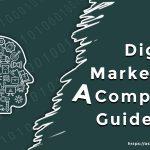The AI revolution is running. We are seeing that AI is doing many types of work, such as content creation, image editing, video editing, video making, voice-over, etc. In this context, our focus is on how to get more traffic using AI.
Let’s jump into the deep:
AI can be leveraged to generate more traffic for a website through various strategies that enhance user experience, improve content relevance, and optimize marketing efforts.
Here are Some Ways How to Get More Traffic Using AI
Personalized Content Recommendations:
You may use AI algorithms to analyze user behavior and preferences. Offer personalized content recommendations to keep users engaged and encourage them to explore more pages on your website.
Chatbots and Virtual Assistants:
You can implement AI-powered chatbots to provide real-time assistance to visitors. It is highly recommended to address user queries, guide them through the website, and offer personalized recommendations.
Search Engine Optimization (SEO):
You may use AI tools to identify relevant keywords and optimize content for search engines. AI can help in analyzing search engine algorithms and staying updated with the latest SEO trends.
Content Creation and Enhancement:
Use AI tools to generate high-quality and relevant content. Optimize existing content using AI for better search engine visibility.
Predictive Analytics:
Leverage predictive analytics to understand user behavior and preferences. Anticipate user needs and tailor content accordingly to enhance the overall user experience.
Email Marketing Optimization:
Implement AI-driven email marketing campaigns for personalized and targeted communication. Use AI to analyze user interactions and adjust email content for better engagement.
Social Media Automation:
Employ AI tools for social media management and automation. Schedule posts, analyze audience engagement, and optimize content for various social media platforms.
Voice Search Optimization:
Optimize content for voice search queries as more users are using voice-activated devices. Understand natural language processing (NLP) to cater to voice search patterns.
User Experience Enhancement:
Implement AI to analyze user feedback and behavior to enhance website usability. Optimize website design and navigation for a better overall user experience.
AI-Powered Advertising:
Use AI for targeted advertising based on user behavior and demographics. Optimize ad campaigns to reach the most relevant audience segments.
A/B Testing with AI:
Utilize AI for A/B testing to identify the most effective website elements and content variations. Continuously optimize website components based on AI-driven insights.
Remember that implementing AI strategies requires a thoughtful approach, and it’s essential to continually analyze and refine your methods based on user feedback and performance metrics.
Benefits of Using AI for Generating Traffic to a Website
Using AI for generating traffic to a website offers several advantages, as it enables more efficient and personalized strategies. Here are some key benefits:
Personalization:
AI analyzes user behavior and preferences to provide personalized content and recommendations, enhancing the overall user experience. Personalized content can attract and retain visitors.
Improved User Engagement:
AI-driven chatbots and virtual assistants engage with users in real-time, addressing their queries and guiding them through the website. This interactive approach can increase user satisfaction and time spent on the site.
Enhanced Content Relevance:
AI tools help in content creation, optimization, and recommendation, ensuring that the content aligns with user interests and search engine requirements. This can lead to higher search engine rankings and increased organic traffic.
Efficient SEO Strategies:
AI algorithms can analyze vast amounts of data to identify relevant keywords, track SEO trends, and optimize content for search engines. This results in improved visibility and higher rankings in search engine results pages (SERPs).
Predictive Analytics:
By using predictive analytics, AI can anticipate user behavior and preferences, allowing website owners to tailor content and marketing strategies accordingly. This proactive approach can lead to more targeted and effective campaigns.
Time and Resource Efficiency:
AI automates repetitive tasks, such as content creation, social media posting, and email marketing. This frees up time for marketers to focus on strategic planning and creative aspects, ultimately improving the efficiency of marketing efforts.
Enhanced Email Marketing:
AI-powered email marketing allows for personalized and targeted campaigns. By analyzing user interactions, AI can suggest optimal times for sending emails, recommend content, and improve overall email engagement.
Optimized Advertising Campaigns:
AI helps in targeting the right audience for advertising campaigns by analyzing user data and behavior. This results in more effective and efficient ad spend, maximizing the return on investment (ROI) for marketing efforts.
Adaptability and Continuous Improvement:
AI systems can adapt to changing trends and user behavior, continuously optimizing strategies based on real-time data. This adaptability ensures that marketing efforts remain relevant and effective over time.
Voice Search Optimization:
With the increasing prevalence of voice-activated devices, AI can optimize content for voice search queries. This proactive approach can help capture traffic from users who prefer using voice search.
A/B Testing and Data-Driven Decision-Making:
AI facilitates A/B testing on various website elements and marketing strategies. By analyzing data and user feedback, AI helps in making informed decisions to refine and improve marketing tactics.
By leveraging the capabilities of AI, businesses can create a more personalized, efficient, and data-driven approach to attracting and retaining website traffic. The result is often a more engaging user experience and increased effectiveness in achieving marketing goals.
Also Read


Disadvantages of Using AI to Generate Traffic
While there are numerous advantages to using AI for generating website traffic, it’s important to be aware of the potential disadvantages and challenges associated with this approach. Here are some drawbacks:
Costs of Implementation:
Implementing AI technologies can be expensive, especially for smaller businesses with limited budgets. The initial costs of AI integration may outweigh the benefits for some businesses.
Technical Complexity:
Integrating and managing AI systems requires technical expertise. Businesses without the necessary technical skills may struggle with implementation and maintenance.
Data Privacy Concerns:
AI relies on large datasets for training, raising concerns about user privacy and data security. Mishandling or breaches of sensitive data can lead to legal and reputational consequences.
Bias in AI Algorithms:
AI algorithms can perpetuate or even amplify existing biases present in training data. Biased algorithms may lead to discriminatory outcomes, affecting user experience and trust.
Dependency on Data Quality:
AI systems heavily rely on high-quality data for accurate predictions and recommendations. Inaccurate or biased data can lead to suboptimal results and affect the effectiveness of AI-driven strategies.
Lack of Creativity:
AI systems are proficient at analyzing data and making predictions but may lack human creativity. Creativity in content creation and marketing strategies may still require a human touch.
Overreliance on Automation:
Over-reliance on AI automation may lead to reduced human oversight. Critical aspects of marketing and user engagement may be overlooked, affecting the quality of interactions.
Limited Understanding of Context:
AI may struggle to fully understand the context of certain user queries or situations. Inaccurate responses from AI systems can lead to frustration and dissatisfaction among users.
Potential for Job Displacement:
Automation through AI may replace certain manual tasks, leading to job displacement in some industries. Job loss or displacement can have social and economic implications.
Complexity of Implementation and Integration:
Integrating AI into existing systems can be complex and time-consuming. Delays in implementation may hinder the timely realization of benefits.
Ethical Considerations:
Ethical considerations, such as the responsible use of AI and avoiding manipulative tactics, need careful attention. Violations of ethical principles may harm a company’s reputation and user trust.
It’s crucial for businesses to carefully assess their specific needs, capabilities, and potential challenges before implementing AI-driven strategies for generating website traffic. Mitigating these disadvantages involves proper planning, ethical considerations, ongoing monitoring, and a commitment to addressing potential issues as they arise.
Also Read


End Words
It’s important to note that the decision to use AI tools should be made based on your specific business needs, goals, and resources. Additionally, ethical considerations, data privacy, and potential biases in AI algorithms should be carefully addressed. Before implementing AI tools, businesses should assess their readiness, ensure proper training and understanding, and have mechanisms in place for ongoing monitoring and improvement.

